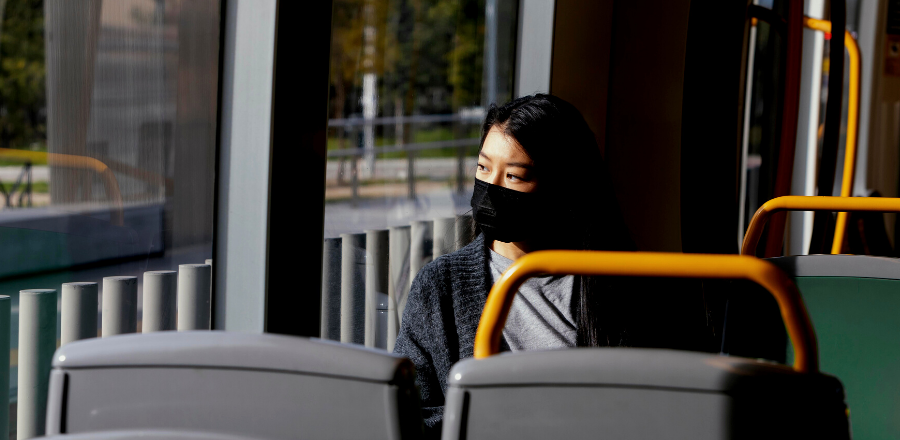“Sneaky” timing on roll back of public transport mask mandate
The AMA is disappointed by the rushed announcement of a further easing of mask requirements for public transport passengers because health advice is being sidelined. Passengers should continue to wear masks to protect themselves and fellow travellers.

The AMA is disappointed by the rushed announcement of a further easing of mask requirements for public transport passengers because health advice is being sidelined. Passengers should continue to wear masks to protect themselves and fellow travellers.
The AMA is disappointed with the timing of the roll back of mask mandates on public transport and the lack of public consultation and engagement on the decisions.
AMA Vice President Dr Danielle McMullen told ABC radio in Sydney the announcement “certainly seems like sneaky timing” and was made in a week dominated by the Queen’s funeral.
New South Wales and South Australia announced this week that they would join Western Australia, the Northern Territory and Tasmania in not requiring public transport passengers to wear a mask to protect against COVID-19.
Dr McMullen said, “It’s a surprising move by governments to rush this (easing mask mandates) through. And we are disappointed that they did not wait and see what the impact of reducing the isolation period to five days would be”.
Dr McMullen said on 10 News First that there had been a lack of consultation and engagement with the community to outline why governments believed they could relax mask rules.
“We have not seen the health advice. We are still waiting, in fact, on the health advice behind the reduction from seven days to five days of isolation and the impact that that will have on COVID case numbers.
“That rushed announcement in a busy week with a public holiday tomorrow (Thursday) and people (are) just not quite being kept up to speed with when and how this change will happen and what they can do to keep their communities safe.”
Dr McMullen said it was concerning that health advice was being ignored because COVID was “clearly not over” and there was a strong need for preparatory work to deal with any future variants and how to deal with the impact of long COVID.
“So our strong encouragement is to continue to wear a mask and look out for yourself and other people,” she told ABC radio.
“We will continue to push for a medical perspective and the safest thing to do is in indoor areas where you can’t physically distance is to put on a mask.
“And that is particularly true if you are vulnerable…or you have got a health condition or if you are at all symptomatic or in an area where there are lots of vulnerable people, such as elderly people, and it’s good common sense and a good public service to put a mask on.”



